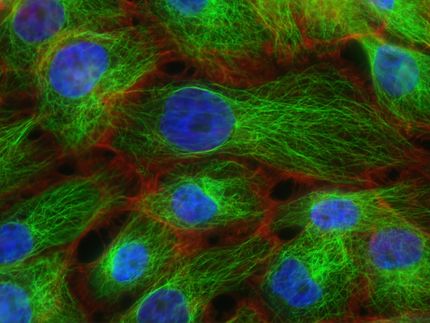Genmab's HuMax-EGFr shows broad potential in cancer treatment
Advertisement
Genmab A/S announced pre-clinical data illustrating its fully human HuMax-EGFr(TM) (zalutumumab) antibody may have broad potential to treat cancers that over-express several types of EGFr (epidermal growth factor receptor). Recently, mutations which appear to alter the signaling ability of EGFr have been identified in tumors from lung cancer patients. Such mutations may be a critical factor in the potential success of EGFr-directed treatments in lung cancer.
In a novel cancer cell laboratory model, HuMax-EGFr effectively inhibited the growth of tumor cells that express both mutated or normal EGF receptors. This inhibition occurred through different mechanisms of action including direct inhibition of cancer cell growth and an immune cell-mediated killing activity known as antibody dependent cell-mediated cytotoxicity (ADCC).
Genmab scientists also used the model to test the effects of tyrosine kinase inhibitors (TKI) such as the marketed products Iressa and Tarceva on EGFr-expressing tumor cells. Tumor cells expressing various mutated EGFr varied strongly in their sensitivity to TKI therapy, whereas no differences in efficacy where observed for HuMax-EGFr.
"This pre-clinical data indicates that HuMax-EGFr may have more potential in the treatment of some types of cancer, such as lung cancer, than tyrosine kinase inhibitors," said Lisa N. Drakeman, Ph.D., Chief Executive Officer of Genmab.
Most read news
Topics
Organizations
Other news from the department research and development

Get the life science industry in your inbox
By submitting this form you agree that LUMITOS AG will send you the newsletter(s) selected above by email. Your data will not be passed on to third parties. Your data will be stored and processed in accordance with our data protection regulations. LUMITOS may contact you by email for the purpose of advertising or market and opinion surveys. You can revoke your consent at any time without giving reasons to LUMITOS AG, Ernst-Augustin-Str. 2, 12489 Berlin, Germany or by e-mail at revoke@lumitos.com with effect for the future. In addition, each email contains a link to unsubscribe from the corresponding newsletter.





















































